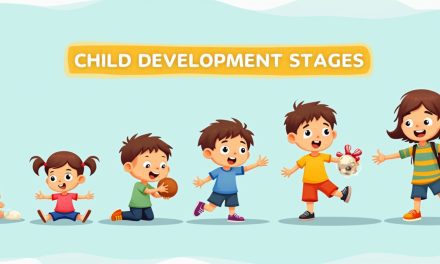In a world where digital distractions abound, nurturing a love for reading in children is more important than ever. Research has shown encouraging kids to read enhances their language and communication skills. It also plays a pivotal role in shaping their cognitive and emotional development.
As parents, you can instill a passion for books in your children from a young age. This helps to set the stage for a lifetime of learning and exploration. In this comprehensive guide, we will explore the vital role of reading in a child's development. We will also offer practical ways to foster a reading-friendly environment at home.
Why Is Reading Important for Kids?
Encouraging a love for reading in kids is essential for building a lifelong relationship with books. It fosters a passion for literacy and education. Besides, this is a crucial aspect of a child's development and can be a gateway to imagination, learning, and cognitive growth.
Children can expand their vocabulary, improve comprehension, and develop critical thinking skills by reading. Parents play a pivotal role in this process by:
- Reading to their children
- Providing access to age-appropriate books
- Creating a positive reading environment at home
Storytelling sessions and library visits can further enhance a child's love for books. This encourages them to explore different genres, ultimately contributing to their cognitive, imaginative, and language development.
How Can Parents Encourage Reading in Kids?
Parents can play a pivotal role in encouraging and nurturing a love for reading in their children. They can achieve this by implementing various strategies and creating a conducive reading environment at home. Here are a few tips to encourage your child to read:
Start Early
Starting early is crucial in building children's love for books and literacy. It lays a strong foundation for their reading journey from an early age.
It is during the formative years that children's brains are highly receptive to new information and experiences. This makes it an ideal time to introduce them to the wonders of books and storytelling.
Engaging in activities that promote early literacy sparks their imagination and enhances language development and cognitive skills. These activities include interactive reading sessions, storytelling, and exposure to diverse literature.
This early exposure lays the groundwork for a lifelong love of reading. It also sets the stage for academic success and a broadened worldview.
Set a Good Example
Parents can encourage reading in kids by setting a good example. They can do this by showcasing their own reading habits and a genuine love for books and learning.
When children observe their parents enjoying books and prioritizing reading as a valuable activity, they are more likely to develop a similar inclination toward literature.
Similarly, parents should make reading a regular part of their daily routine and express enthusiasm about new novels they've discovered. This showcases the joy and benefits of delving into a book. This parental influence can create an environment where reading is seen as a natural and enjoyable pastime.
Make Reading a Part of Daily Routine
Incorporating reading into kids' daily routines can help solidify the importance of books. It also creates a consistent reading habit within the family.
Encouraging children to read in different settings, such as the park, before bedtime, or during road trips, can make reading a natural part of their daily lives. Other hacks to integrate reading into daily routines include:
- Creating cozy reading nooks
- Having a variety of books easily accessible at home
- Setting designated reading times
You might also want to consider discussing the stories with children. This shows enthusiasm for their reading choices and fosters a love for books.
Create a Reading-Friendly Environment
Establishing a reading-friendly environment at home involves creating a space conducive to learning, exploration, and imagination. This is one way to foster a love for books.
This can be achieved by setting up comfortable reading nooks with soft, well-lit corners and cozy seating arrangements. Access to diverse books, ranging from classic literature to contemporary stories, encourages broadening one's literary horizons.
Integrating technology, such as e-readers or educational apps, can also provide enhanced learning experiences. In fact, this can make reading more interactive and enjoyable for individuals of all ages.
Let Kids Choose Their Own Books
Empowering kids to choose their own books can instill a sense of ownership and excitement in their reading journey. Doing this fosters a personalized connection with literature.
Allowing children to select their own reading materials enables them to explore their interests and connect with stories that resonate with them.
This autonomy can increase engagement and enthusiasm for reading as they feel a sense of agency in their literary choices. It also helps them develop a love for reading as they are more likely to be invested in the books they have personally chosen. The result is a positive impact on their overall literacy development.
Incorporate Reading into Activities
Integrating reading into various activities and hobbies can make the experience more interactive and enjoyable for kids. It fosters a love for books in diverse contexts.
For example, reading can be incorporated into outdoor adventures through nature-themed books or field guides. Cooking and baking can also become opportunities to explore recipe books. Meanwhile, art projects can include reading about famous artists or exploring instructional books on various techniques.
Incorporating reading into sports can involve biographies of athletes or books about the history of different games, adding an educational element to physical activities. Integrating reading into various activities allows children to discover the joy of books in unexpected and engaging ways.
Make Reading Fun
Promoting a fun reading experience can encourage kids to view books as a source of creativity, imagination, and exploration. This is great for nurturing a positive reading culture. Nigel and the Moon is a superb example of a book that encourages imagination and curiosity.
Now, if you really want to make reading interactive and memorable, try storytelling sessions where kids can:
- Act out characters
- Express emotions
- Participate in creating alternate endings
Incorporating creative activities like arts and crafts related to the story or having themed dress-up days also brings the story to life.
Integrating multimedia resources such as audiobooks, interactive e-books, and educational videos can further enhance the reading journey. This leads to a dynamic and engaging experience for children.
Are you searching for the ideal books to kickstart your child’s reading journey? Visit our website and check out the children’s books we’ve reviewed.









